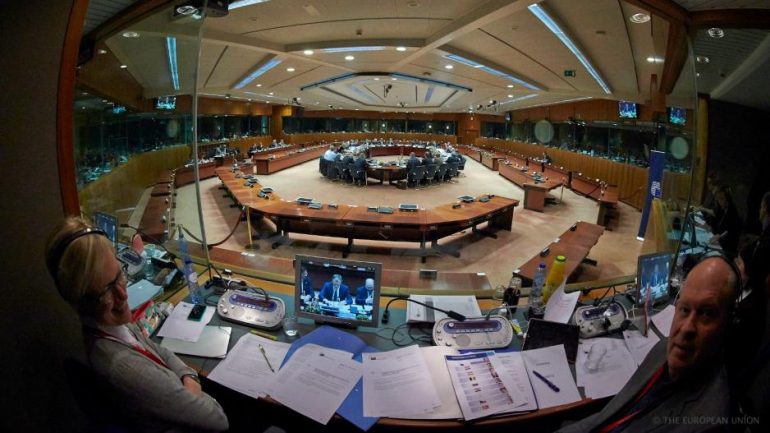"Disembarkation platforms" for refugees and migrants, "controlled centers", strengthening of external borders: the main points of the agreement reached by European leaders after overnight talks:
"Disembarkation platforms":
The 28 call for a "rapid process" of the still vague concept of "regional disembarkation platforms" for refugees and migrants rescued at sea outside Europe in co-operation with the UN High Commissioner for Refugees and the International Organization for Migration to prevent deportation. .
No third country has so far offered to host such reception centers for survivors in international waters, which will distinguish between illegal immigrants and asylum seekers in the European Union, "within the framework of international law".
Morocco and Albania have already announced that they will not accept the establishment of such centers on their territory. After all, these very reception centers, called "platforms", raise doubts in European countries as to whether the disembarkation of people rescued at sea is in accordance with international law.
"Controlled centers":
The text of the agreement stipulates that survivors at sea can be placed in "controlled centers" in the territory of the European Union from where they can be distributed within the Union when they are entitled to asylum or repatriated to their countries otherwise.
However, the establishment of such centers, which will operate by European means, is left to the discretion of the Member States and in the same way the distribution of refugees "should be done on a voluntary basis".
Italy welcomed the proposal, but did not say whether it would set up such "controlled centers" on its territory. The text of the agreement refers to "controlled" and not "closed" centers, as proposed by France. However, the term "controlled" is not defined.
"Secondary movements":
The compromise agreement contains a paragraph dealing with the movement of refugees and migrants between the countries of the European Union without waiting for the decision to grant asylum in their country of arrival. These movements are called "secondary".
"Member States must take all necessary domestic legislative and administrative measures to deal with such movements and to work closely with each other to that end."
"Secondary movements" are the cause of tensions between Chancellor Angela Merkel and her main ally in the ruling coalition, the Christian Social Union (CDU) of Bavaria, which threatens to repatriate refugees and migrants from Germany's southern border. another country, if there is no European solution to the problem.
External borders:
The agreement provides for the strengthening of Frontex funds by providing it with more funding (without specific amounts) and a broader mandate.
It also calls for increased support for the Libyan "coast guard" and calls on "all ships operating in the Mediterranean" to abide by existing legislation and not to obstruct Libyan coast guard operations. This paragraph gave particular satisfaction to Italy and Malta.
The 28 have agreed to release the second tranche of the 3 billion-euro package of aid to refugees in Turkey and to fund the European Union fund for Africa to combat the causes of migration.
Dublin Regulation:
"There must be a consensus on the Dublin Regulation to be reformed on the basis of a balance between responsibility and solidarity," the text of the agreement said, but did not set a timetable for reform.
Initially, this European summit was to deal with this consensus solution for the reform of the Dublin Regulation, but disagreements are still very strong about the changes that need to be made to this European legislation, which entrusts the responsibility. for the management of any asylum application in the country of entry into the territory of the European Union.
The European Commission proposes to lift this regulation in times of crisis, by implementing a compulsory distribution of asylum seekers. But countries like Austria and Poland, backed by Austria, are categorically opposed to the idea.
Italy, for its part, calls for a permanent distribution system and the complete abandonment of the principle of responsibility of the country of entry.
